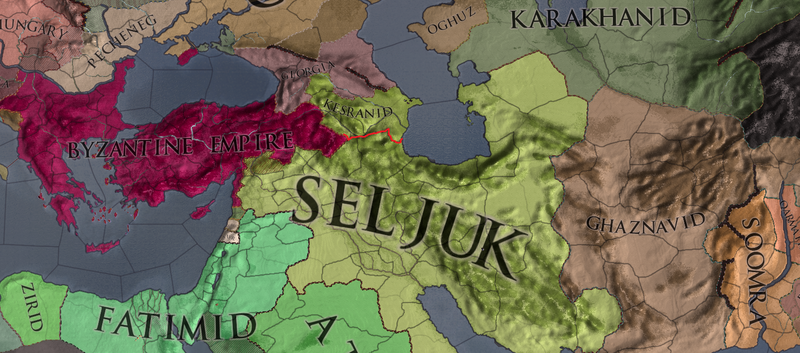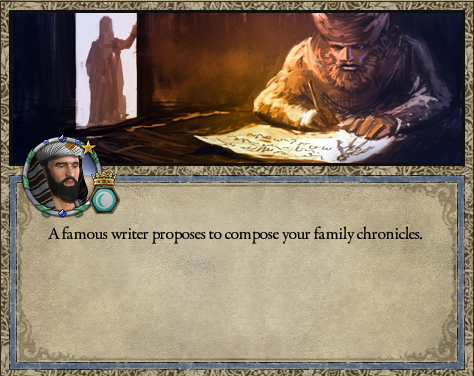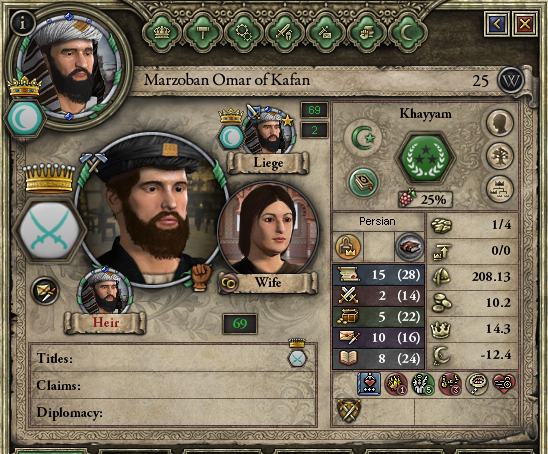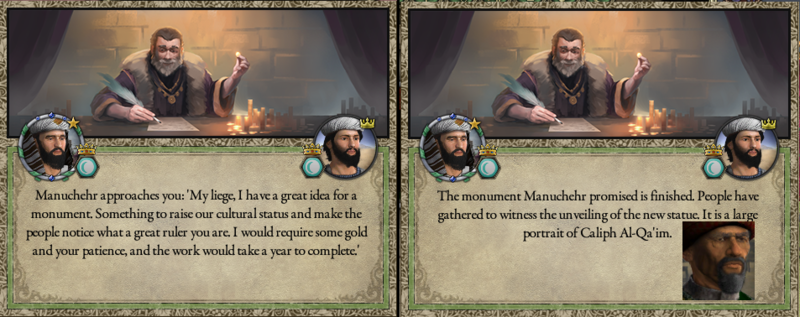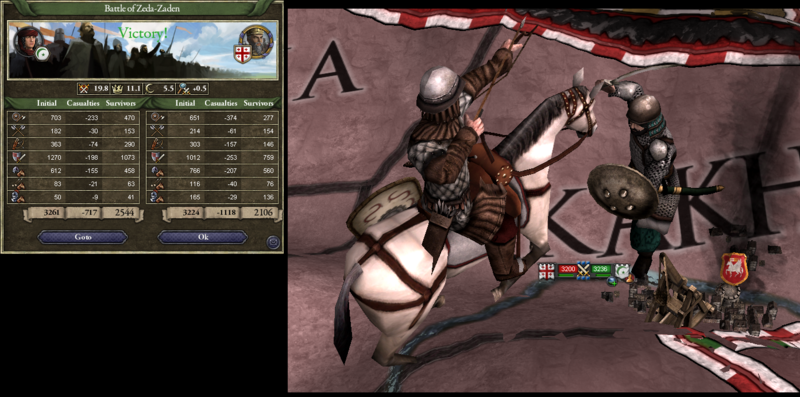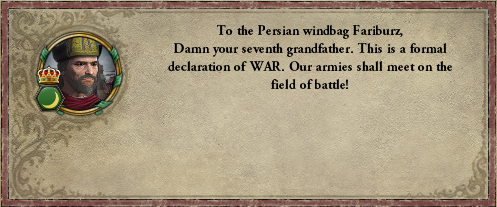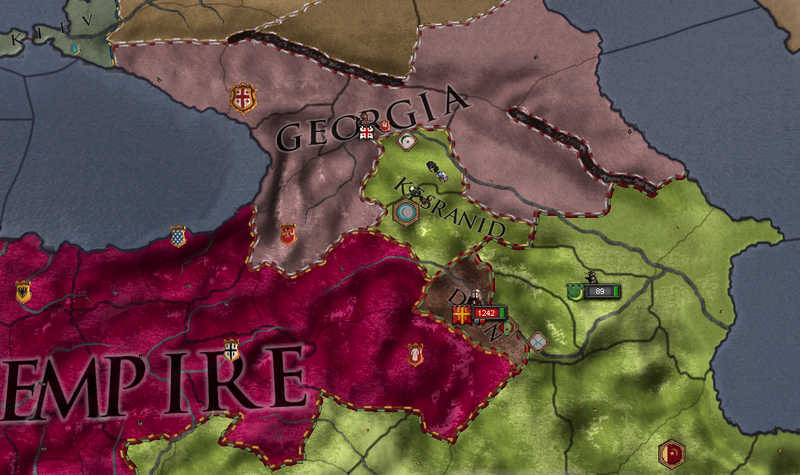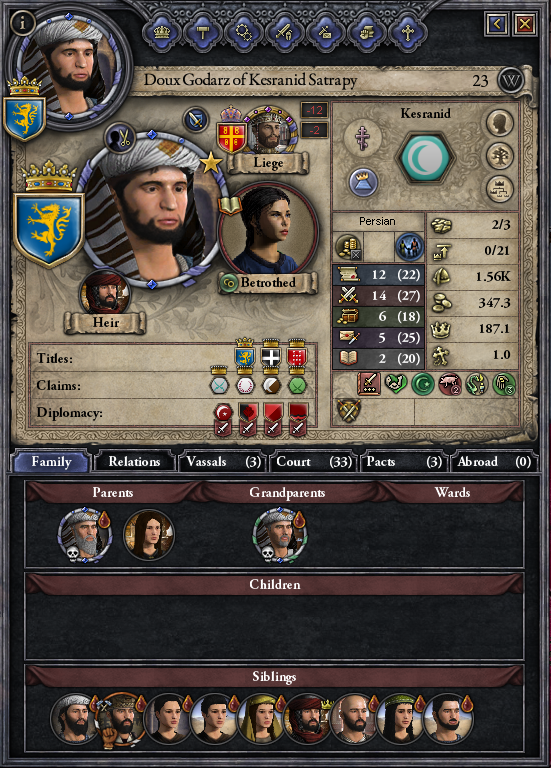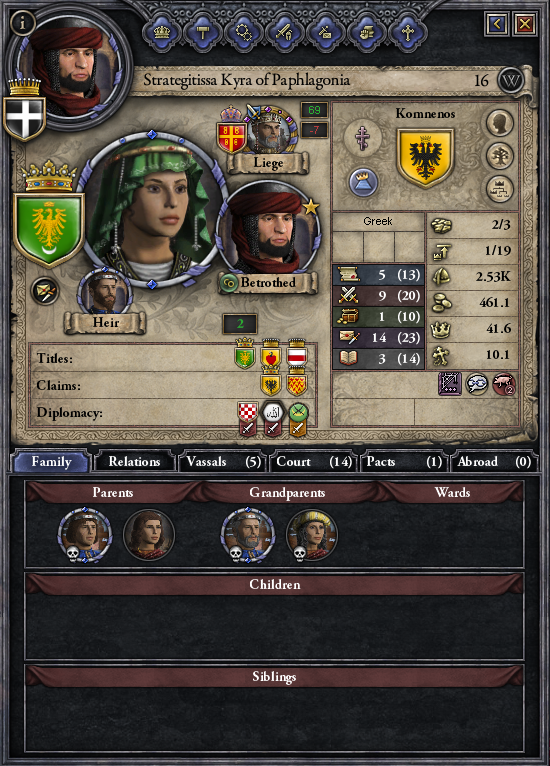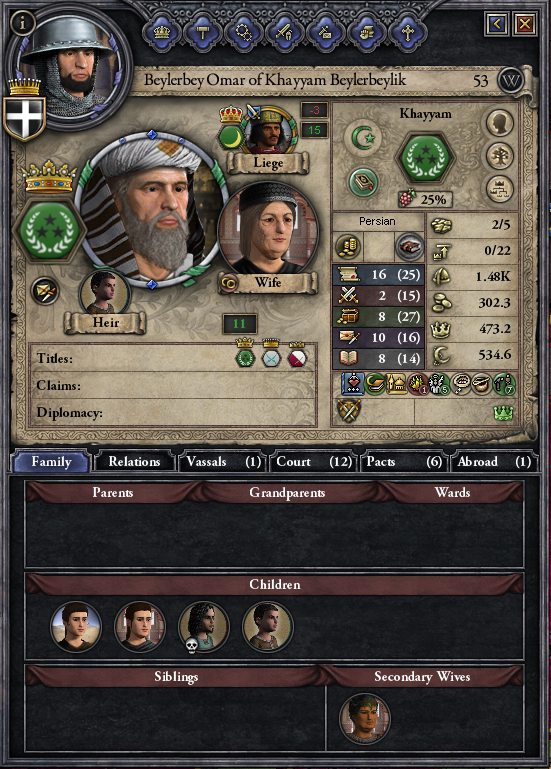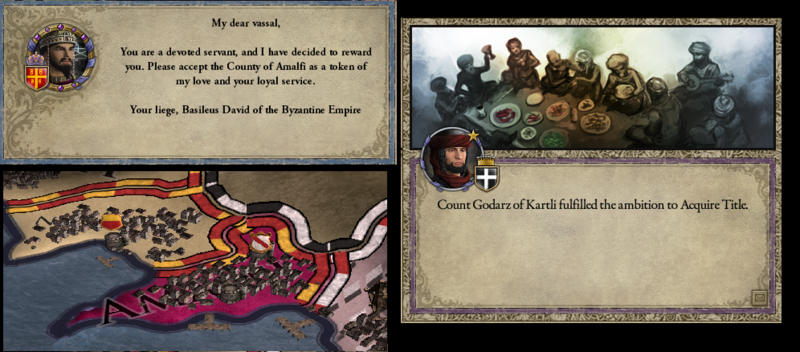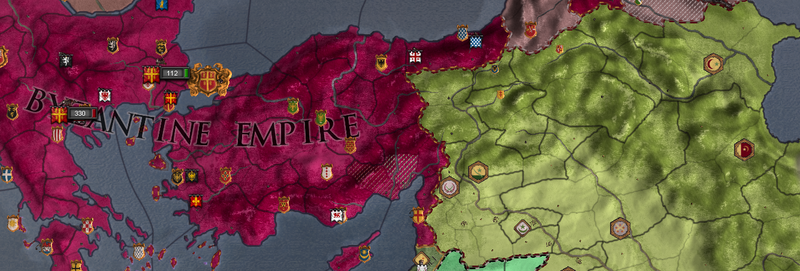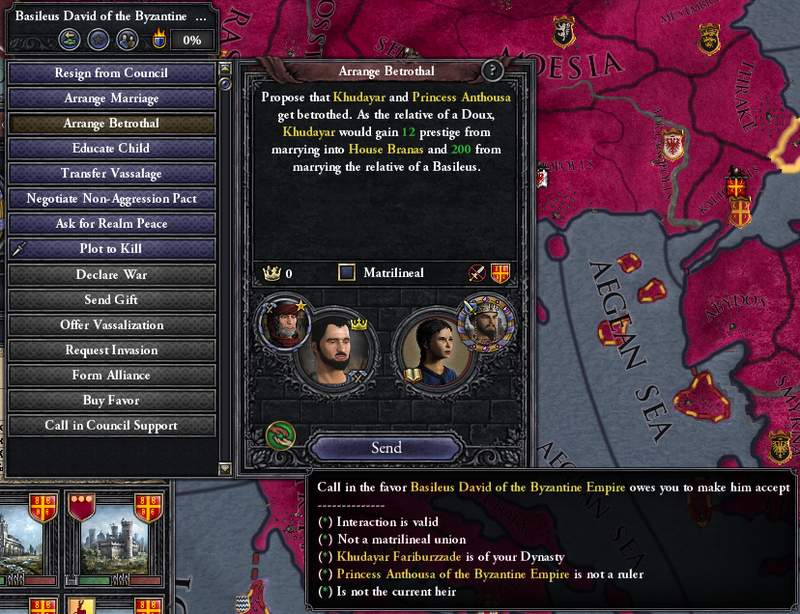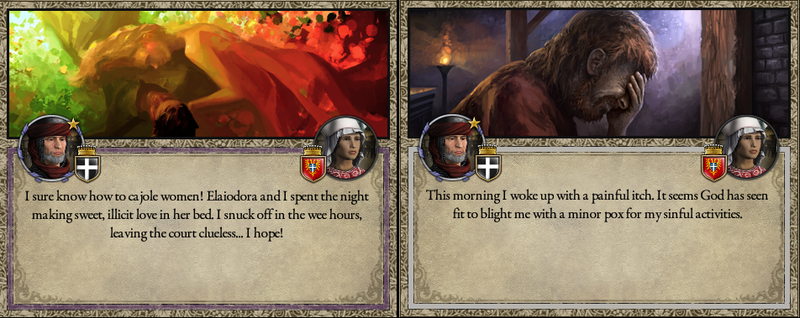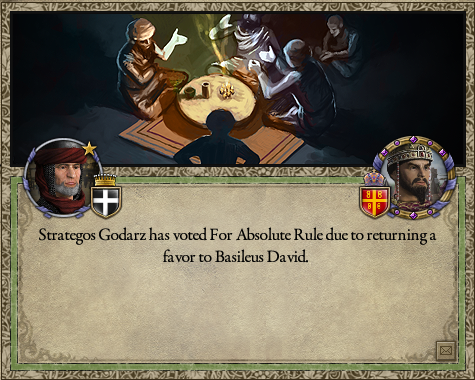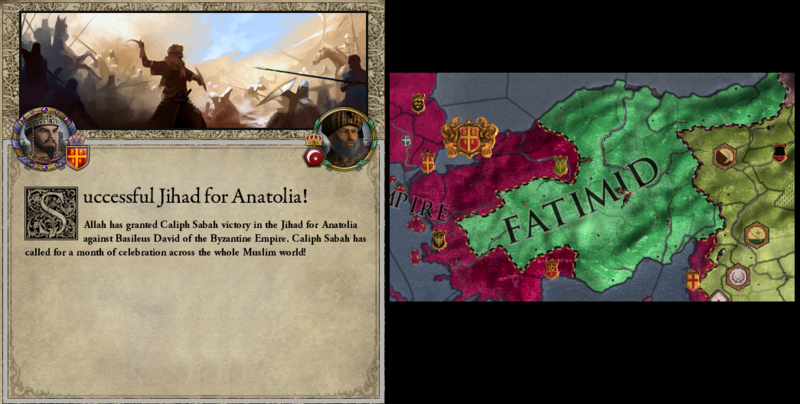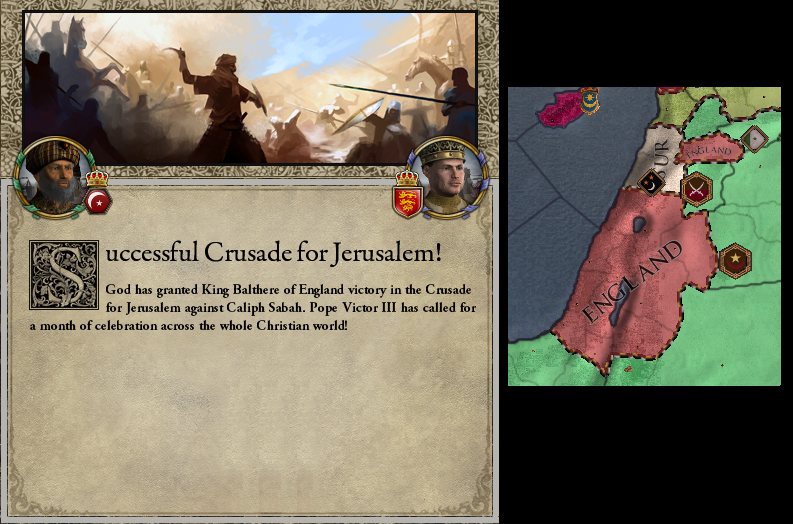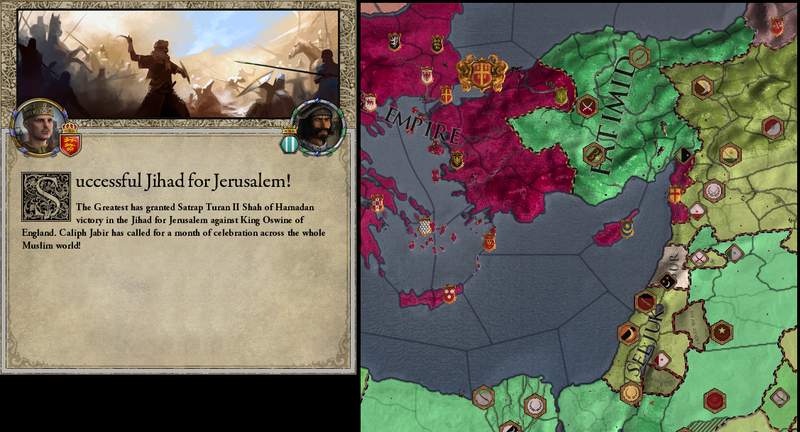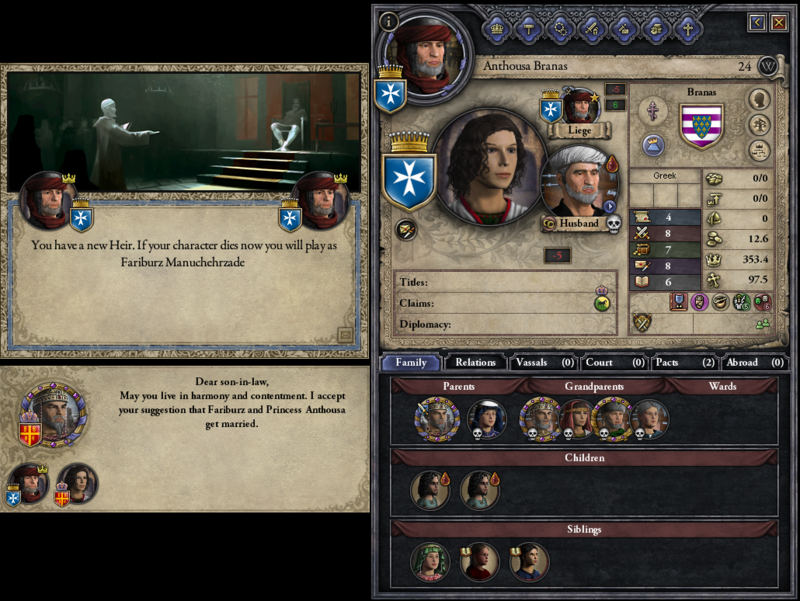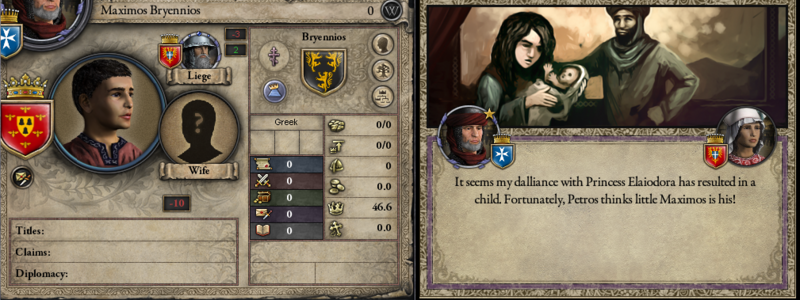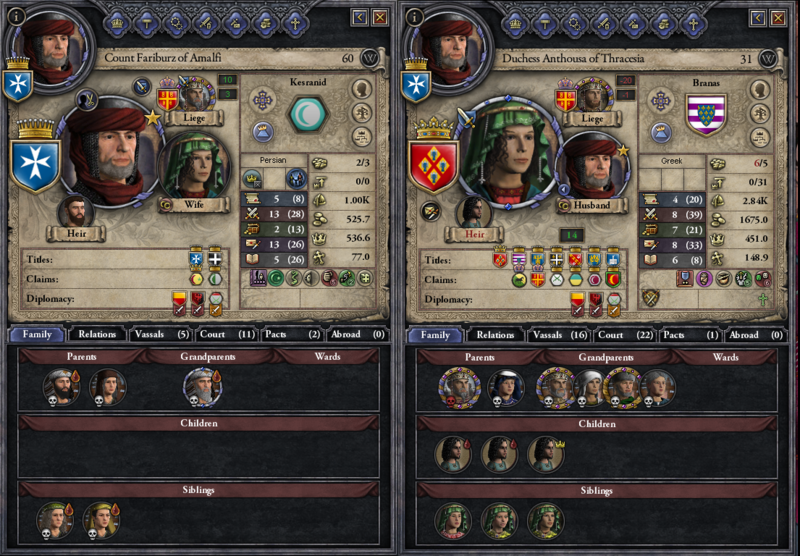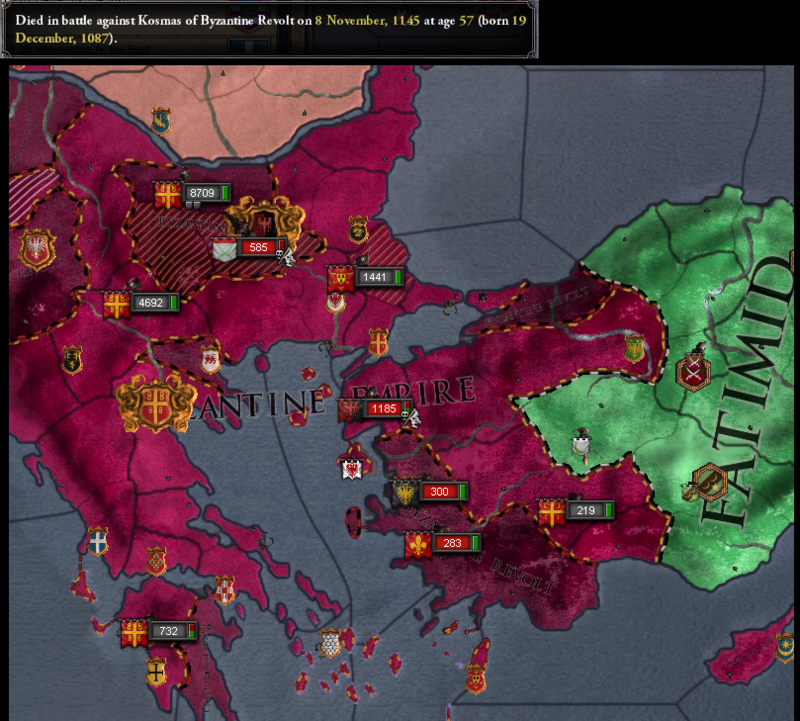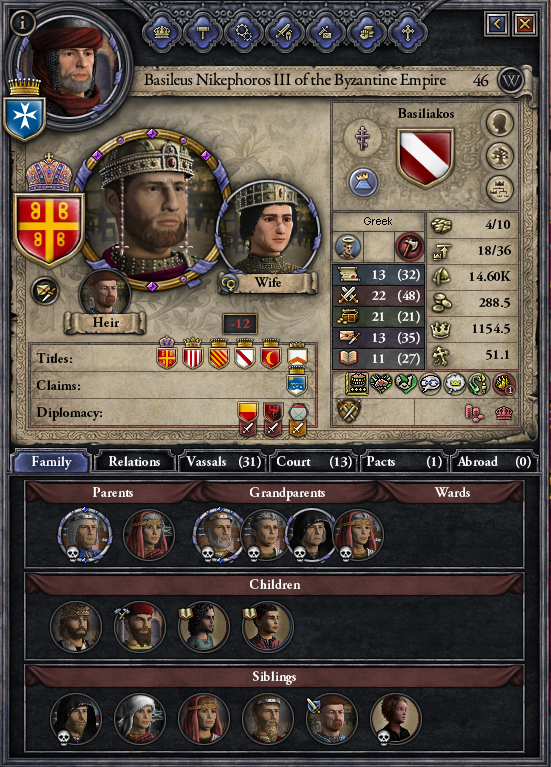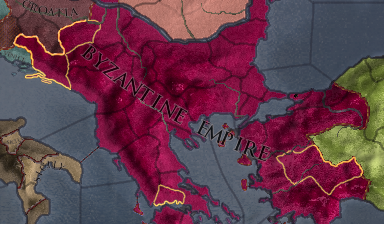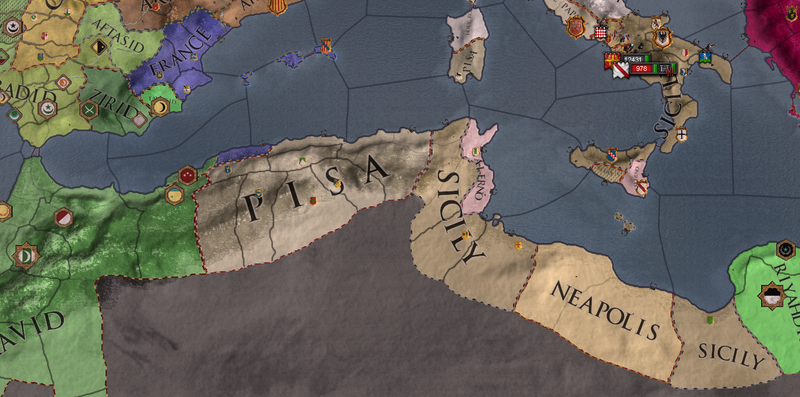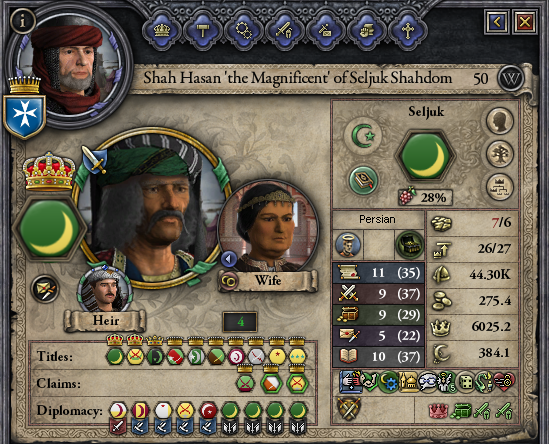Godarz was the thirdborn son of Fariburz, a predecessor so longlived that he outlived his first two heirs. Although at the time of his accession to the counties of Kartli and Lori he was a member of the Orthodox communion, he quickly returned to the Miaphysite Church of his father. For much of his reign his heirs would be his Muslim brothers, and a difficulty producing heirs caused much concern among his court and family. Godarz was a strong warrior and an able general, serving the Basileus as a commander in many wars.
Marriage to Kyra
Godarz' betrothed, Kyra, became the Strategissa of Paphlagonia, a wealthy region in north-western Anatolia, before their marriage, and Godarz hoped to secure a Greek aristocratic lineage and lucrative estates for any children they would conceive. Unfortunately, it was rare for any contact between the couple, as Kyra had many enemies in Paphlagonia and elsewhere that saw the rule of a woman married to a foreigner as a chance to further their own interests. As a result, Kyra spent her entire adult rule in hiding, much to the frustration of her husband, who did so desire a son from her.
Loss of the Title of 'Doux'
As a vassal of the Emperor of the Romans, Godarz was only briefly recognised with the dignity of a Doux. Since the lands his father had ruled were now ruled by a Seljuk Beylerbey, and Godarz only infact ruled two counties within the empire, he was only addressed as Count Godarz. Fortunately, he was not placed under the authority of a Strategos and answered directly to the Branas dynasty in Constantinople.
At this time Godarz fought bravely in the defence of Anatolia against a Sunni Jihad, and saw it successfully repelled.
Moment of Madness
Following his long exertions in Anatolia, Godarz returned with many peculiar habits. He would spit and contort himself and spoke in tongues. It became apparent that Godarz was under possession by a demon, probably having entered him from the body of a slain Turk warrior that fought with mad ferocity. Godarz would suffer for many years fighting his demon, but would triumph eventually by employing the services of a monk trained in exorcism.
Lord of the Fringe
Godarz channelled his ambitions for more land through diplomatic channels at court, when it became a possibility that Kyra would bear him no children. Owing to his previous service for the Basileus, Godarz was granted the rule of an additional county. The Basileus saw fit to grant him the furthest possession from his existing lands on the eastern fringe of empire, and granted him the small Byzantine outpost in Sicily, the port county of Amalfi. Godarz would have great difficulty propagating Miaphysite worship throughout Amalfi, as proselytising missionaries were often sent from the imperial court to enforce Orthodoxy. This pattern was common throughout all lands belonging to the minority Coptic faith, with Miaphysitism being almost eliminated from Armenia. Rumours stated that deep into the territory snaked by the nile, beyond lands known even to the Mohammedans, an empire of Copts survived and flourished, and had even conquered lands in Arabia.
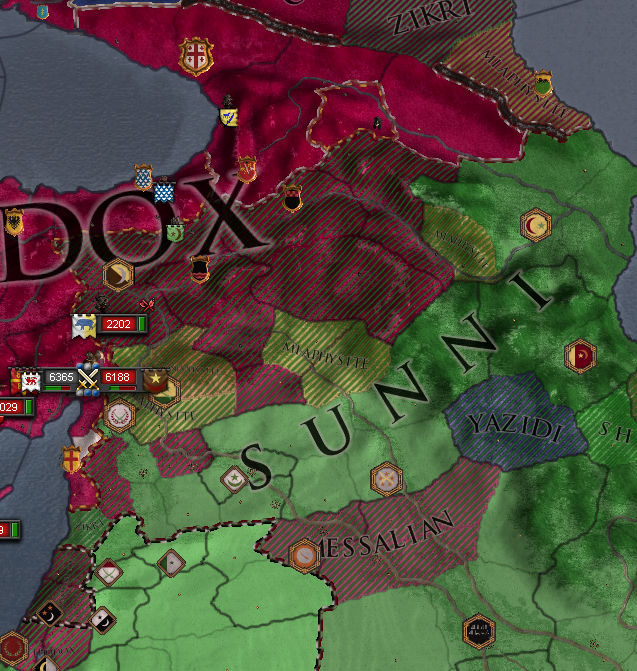
Nevertheless, Amalfi would become as much of a home to the Shirvanshahs in exile as Kartli, despite the vast distance between them.
Chancellor and the Loss of Lori
Having gained additional land, Godarz further advanced the family's standing in the politics of Constantinople by being appointed Chancellor. Godarz was now deeply imbedded in his host country. Despite being considered somewhat of a foreigner, due to his strange speech and Persian customs, he was now commanding armies of Greeks and held a government post second only to the imperial family itself. As a councillor, Godarz would have many great problems to grapple with, and sadly fail. The Shia Caliph in Egypt had declared a Holy Jihad to claim Anatolia, and the Seljuks were encroaching on Armenia. WIth two great empires to face at once, the Byzantine armies crumbled and Armenia was lost, including the county of Lori. Kartli now lay outside the greater borders of the empire, and Godarz would have to risk travel through Georgia, or worse Seljuk Armenia, to travel from his own demesne to the capital.
Princess Anthousa
It is rumoured that Godarz learned of some embarrassing secret of Basileus David Branas, or helped him out greatly in some private moment of need, as it was later acknowledged that Godarz was owed a great favour by the crown. This favour was called in at a meeting where Godarz proposed an engagement to wed between the young Princess Anthousa and his brother, and heir, Khudayar. This was shortly after Fareedun succumbed to an illness and died.
Godarz, frustrated by the absence of his wife, had gained a reputation for clumsily trying to seduce heiresses or royal princesses, and was no longer welcomed in the Sicilian court or in the company of many a Strategos. His charms did eventually succeed, however, in wooing the imperial princess Elaiodora - although if the rumours surrounding the princess are true, it did not take much to woo Elaiodora.
Authority and Decline
Godarz continued to work well with David Branas, and worked up a reputation as a mercenary by accepting frequent 'gifts' from the Basileus in return for voting away the powers of the council. This money was used to greatly expand on the neglected county capital in Amalfi, which had neither walls nor garrisons nor a market when it was granted to Godarz.
After a decade of war, Anatolia was finally lost to the heathen, becoming part of the realm of the Sultan of Egypt.
Godarz was now separated from his Kartli exclave by a great landmass with difficult mountainous terrain and hostile occupiers. For the sake of practicality and safety, the court in exile of the Shirvanshahs was moved to the County of Amalfi, where the sea could provide a means of fast travel and communication with the rest of the empire. Many months would pass between hearing any news from Kartli, and Godarz lived in fear that soon his lands would be reduced to a small outpost in the middle of a land, and sea, that were until very recently alien to him.
In Amalfi, Godarz sought to invest in creating a court worthy of his lineage, and encouraged all forms of art and culture, turning his own hand to writing poems of love and longing in the Persian tongue.
The Second Crusade
A small victory for Christendom, but viewed with some trepidation in Constantinople, the Second Crusade was far more successful than its disastrous first run, and managed to seize Jerusalem and much of the Levant from the Caliph of Egypt. At the same time Godarz announced the unfortunate death of his wife, Kyra, who had just returned from hiding, having lost all of her family lands in the Jihad. Many believed, as does your chronicler, that Godarz had her killed, having no use for her now that she was unlanded with few fertile years left. Instead he took as his betrothed a young Byzantine Princess named Alexandra.
The Second Crusade's winnings didn't last long, since the Caliph of Baghdad declared a Jihad on them, which the Seljuks took up with vigour. Jerusalem now belonged to the Turks. Egyptian weakness provided a modest opportunity for the Basileus, who retook a small amount of land in the interior.
Fariburz and the Princess
Khudayar died in 1139, leaving Fariburz Manuchehrzade as Godarz' heir. Godarz had him immediately married to Khudayar's widow Anthousa, to ensure that the Basileus and Shirvanshah would be linked by blood, even if Godarz failed to conceive with his own Princess Alexandra.
When Godarz eventually produced a son, it would be legally adopted by the cuckholded father, denying Godarz the heir he craved.
Death
Godarz died a natural death and enjoyed an extremely long reign and life. He enjoyed an illustrious career in service to Byzantium, although he failed to gain great feudal holdings for his family, or to produce a son. He was succeeded by his nephew Fariburz, who outlived his uncles and won the right to the position his own father had lost out on due to his early death - that of Shirvanshah. A title that still holds great meaning for the Persian exiles, even now that it has brought them to Italian soil.





